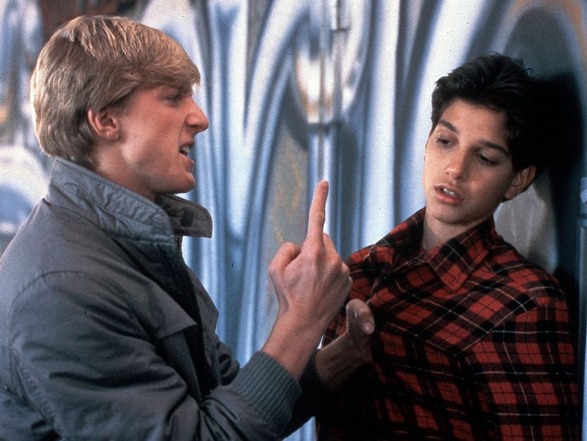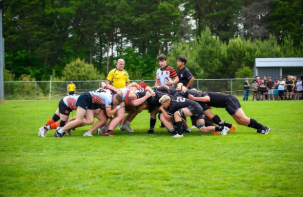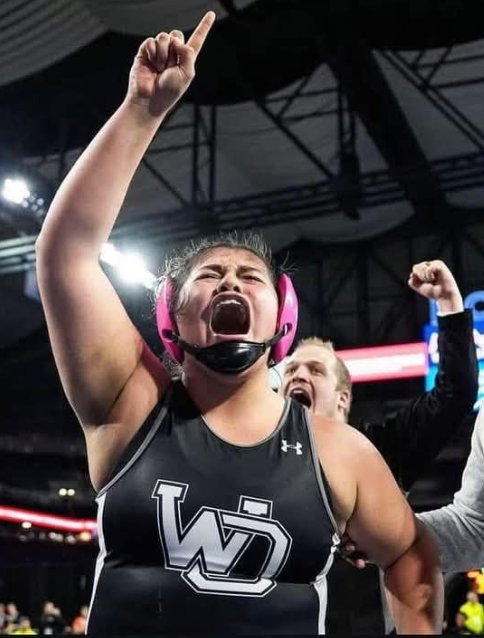It was the bottom of the ninth. One out left before the Red Sox could be crowned World Series champions. Seven time all star Chris Sale, who the Red Sox had traded for back in 2016 was on the mound in relief for Cy Young winning pitcher David Price, who had signed with the team in 2015. Manny Machado, newly acquired slugger, was up to bat. Sale winded up and delivered a pitch that Machado had no chance at hitting. The Red Sox won their fourth world series in 15 years, solidifying them as one of the MLB’s most prestigious franchises.
The Red Sox had a team for the ages, with five All-Stars and the American League Most Valuable Player, Mookie Betts. This team was destined for success since spring. The Red Sox are just the latest example of a super team in pro sports. A super team is a team that has acquired multiple high level players from other teams through means like free agency or trade. While super teams are hard to make in sports with large rosters and tight salary caps like the NFL, in leagues with comfortable caps or no caps at all like the NBA and MLB, super teams are the only way to win. Due to the new era of super teams a debate has emerged as to whether they are beneficial or harmful to their leagues.
Jamahl: For Super teams.
Kevin Durant, Lebron James, and Justin Verlander. These great names conjure up memories of success and winning, but none of this would be possible without these athletes highly successful teams. Durant has Steph Curry and Klay Thompson. LeBron has had the likes of Dwayne Wade and Kyrie Irving. Verlander plays with Jose Altuve. Unquestionably, these players’ legacies are elevated by the success of their high-powered teams, otherwise known as super teams. Blake may believe super teams are bad for their respective leagues, but the presence of stacked teams provides an aspect of dominance to an otherwise mediocre league.
Everyone is mesmerized by greatness. Over and over, sports fans have proven their willingness to come out and watch the Jordans and Bradys of the world. This magnetic pull is only amplified by great teams. Teams like the Warriors and the Astros constantly draw the primetime games and sell-out crowds. Five out of the top ten viewed NBA games involve the Warriors and for further reference, the Detroit Pistons first home sellout of this year occurred against the Warriors. Clearly, people love to watch successful teams. Blake, even if you hate them, you still watch them. People are drawn to success and super teams are the perfect example of this.
Along with serving as the standard of success, super teams provide fans with the David and Goliath stories they love. College football has made millions on games where the undefeated top ten team loses to some small no name school. These games capture the attention of millions, and super teams give this kind of parity to pro sports leagues as well. Blake, I know you love to hate successful teams like the Patriots and Yankees because of their long-standing success, to the point you might feel the league is rigged or that these dominant teams play unfairly. But you also have to acknowledge that this continued success only makes these teams losses that much more enjoyable. People love to watch upsets, and no upset is bigger than when a super team loses. Take the 2016 Warriors loss to the Cavaliers in the NBA Finals. People were shocked by the Cavs win because of the Warriors seemingly unbeatable team. You brush over these finals saying the Cavs only “came back and stole the NBA title.” In reality, this was a legendary series that people will remember for a lot longer than if two mediocre teams were in the finals. Without super teams, there wouldn’t be these huge upsets that people love to see.
While people certainly love underdogs, they also love top tier matchups. In sports with multiple super teams, nothing’s more exciting than watching them battle it out head-to-head. Some of the greatest matchups in sports have been between two amazing teams, such as the 2016 world series between the Houston Astros and Los Angeles Dodgers. The Astros had the likes of Jose Altuve and Dallas Keuchel and the Dodgers had Clayton Kershaw and Yasiel Puig. The series was an instant classic going seven games before the Astros won. Sports matchups can’t be better than when two super teams play each other.
Besides the entertainment possibilities of super teams, they are also an extension of good management. After the head coach, the first place fans look when a team isn’t successful is upper management. Whether it’s the general manager, head scout, or owner, they are a crucial part of a team’s success. However, when a team is successful, few looks to congratulate these same people. The reality is, super teams are a byproduct of good management. A general manager’s job is to try to draw in the best players possible. Criticizing super teams is stupid because in reality, it is a direct criticism of managers for being great at their jobs.
Finally, criticizing players for forming a super team creates a double standard. Athletes, like Tom Brady, are praised when they take a paycut to remain on the same, albeit very successful, team, but when athletes do the same thing with a new team, suddenly people call that player a coward and unloyal. Really, they are showing great respect for the game; choosing to win over money is something almost every sports fan should commend. To see this double standard in action, look no further than Kevin Durant’s free agency decision in 2016. Durant turned down millions of dollars in potential supermax contracts to join a team he thought he could be the most successful with. He pursued winning, not paychecks. Durant was highly criticized for this move even though his decision simply illustrated how devoted to the game he truly is. This is the reality of many super teams. Many athletes on these dominant teams chose success rather than money, and that is something many critical fans seem to overlook. Blake, you acknowledge the fact that “free-agent star Kevin Durant took millions of dollars less than what other teams offered to join the Warriors,” but you criticize him and say that “he ruined the NBA with this decision.” This is so hypocritical and incorrect. You talk about respecting the integrity of the game so wouldn’t you support a player choosing to win over money?
Blake is simply taking the easy way out by blaming his own team’s failure (sorry, Bears) on the success of others. Instead, he should focus on seeing the sacrifices, hard work and dedication it takes to make these teams, and appreciate the entertainment he gains from them. Every pro sports teams’ job is to win at any costs. Super teams are just the newest evolution of this never-ending quest for victory. In the words of Al Davis, the late great owner of the 3 time super bowl champion Oakland Raiders’, super teams are trying to find the best way to “just win, baby!”
Blake: Anti super teams
Super teams ruin the competitive nature of sports.
Jamahl you are so wrong when you say “Everyone is mesmerized by greatness.” Obviously, a fan of the Golden State Warriors will be mesmerized by their dominance, but think about the fans for the rest of the league. Do you think Chicago Bulls fans will be amazed by the Warriors, or do you think they will be annoyed to see how bad the Bulls are in comparison? Super teams make sports less fun to watch. Sports mean so much to people in the United States, and you are trying to tell me that every fan is mesmerized by super teams? Unbelievable.
Look at the Golden State Warriors. Five years ago, the Warriors had an average team. They finished the season 47-35 and placed 6th in the Western Conference. The next season Stephen Curry and Klay Thompson emerged as NBA stars. Curry and Thompson played such high-quality basketball that the Warriors won the NBA Title in 2015. After a 67-15 season, the Warriors continued their success the next year, finishing 73-9. Though they led the NBA finals 3-1, the Cleveland Cavaliers came back and stole the NBA title. Already a formidable team, the next season the Warriors formed a super team. July 4, 2016, free-agent star Kevin Durant took millions of dollars less than what other teams offered to join the Warriors. Kevin Durant ruined the NBA with his decision. Since Durant joined, the Warriors have seemed unstoppable. In Durant’s first season with the Warriors, they only lost one game throughout the playoffs. Not to mention the following year, the Warriors won the NBA title again. Sure, Warriors fans are mesmerized by their greatness, but for the other fans, they become angered to watch a seemingly unbeatable team.
Jamahl, you have a point when you say greatness mesmerizes some fans. However, the competitiveness that sports present is why so many people tune in. Let’s not forget, three of the past four years the Warriors won the NBA title. Do you think fans of the league want to see that? Many sports fans stopped watching the NBA because of the Warriors. According to The Statistics Portal, in 2017, 20.4 million people watch the NBA title game. But, in 2018, just 17.7 million watched the title game. Seeing the same team win repeatedly becomes redundant and boring to watch. The only way to eliminate redundancy from occurring is to eliminate super teams and bring back the competitive leagues that fans wish to see.
Also, Jamahl, you pointed out that fans were shocked in 2016 when the Cavaliers upset the Warriors because it seemed like David and Goliath since the Warriors appeared unbeatable. Your statement is so false. The series did not shock fans because the Cavaliers could beat the “unbeatable” Warriors. The series shocked fans because the Cavaliers won the NBA finals after trailing the series 3-1. You must understand that the Cavaliers were not a “David”. The Cavaliers had the best player in the world, Lebron James, and arguably the best point guard in the league in Kyrie Irving. You also mention that this was a legendary series that people will always remember. Fans only remember this series because the Cavaliers won their first championship in half a century, and the Warriors finally lost.
Super teams also take away great coaching. For example, the Chicago Bears hired Matt Nagy as their head coach last offseason. Nagy led the Bears to an 8-3 record after 11 games. At the same time last year, the Bears had a 3-8 record. The change in head coach explains the Bears success. If the Bears gained five Pro Bowl players in the offseason, people would not consider Nagy a great coach. Critics would say the Bears are good because they spent millions of dollars on pro-bowl caliber players in the offseason. Outsiders would fail to recognize the significance of the head coach, and Nagy would not receive the glory he deserves.
When super teams form, the head coach gets little credit from fans and viewers. The same holds true for the Warriors. Coach Steve Kerr played in the NBA and has great knowledge for the game. However, since Durant joined the Warriors, Kerr never received the credit he deserves for leading the Warriors to three titles in four years. Fans and viewers believe Kerr does not coach because the team surrounding him is too talented. So, not only do super teams ruin a league, but they take away the respect and glory coaches deserve.
Jamahl mentioned that super teams are fun to watch even if you dislike them. Jamahl, what makes you think an overpowered team in the league is fun to watch? Would you want to see the NBA All-star team play the Detroit Pistons? Fans can predict the outcome, so why would they want to watch a super team? Fans of a league watch super teams in hopes for a loss. Sports fans thrive in moments when super teams lose. When Duke or the New England Patriots lose, social media blows up with trash talk and excitement. Fans of a league do not watch super teams because they like watching them. They tune in to watch a super team because they dislike them so much that they want them to lose. If a loss occurs, opposing fans laugh and enjoy the loss in every way possible.
Jamahl, you must not forget that super teams ruin the competitive nature of sports. Teams become so talented that they seem unbeatable. The goal of sports is to entertain viewers, right? If that is the case, then super teams certainly do not do viewers any favors. Also, you say super teams benefit one fan base. Your statement seems right; however, the fans of the opposing franchises become bored and hopeless because they can predict the season outcome. For example, the University of Connecticut (UCONN) women’s basketball team. Since UCONN has dominated women’s college basketball over the past decades, fans are shocked if they do not win the national title. In fact, UCONN has won 10 of the past 19 championships. They win once every two years. That is absurd! Also, since UCONN has had such dominance, many fans fail to watch women’s college basketball because they can predict the season outcome. The UCONN team provides yet another example of why super teams need to go.
What do fans of a league have to be excited for when super teams form? In the NBA, the Cavaliers and the Warriors have played each other in the finals for each of the past four seasons! The league becomes too predictable with super teams. For the fans of the Warriors and Cavaliers it is exciting, but for the rest of the fans, they want to see a new team. Also, the Red Sox have won 4 of the past 15 World Series. Over the years they have created super teams due to their large market size. Super teams occur in many leagues right now, but they must stop before they ruin all leagues. Fans would rather see a new matchup every year instead of the same two teams. So, by eliminating super teams, leagues will have more passionate and excited fans, as opposed to annoying bandwagon fans.












